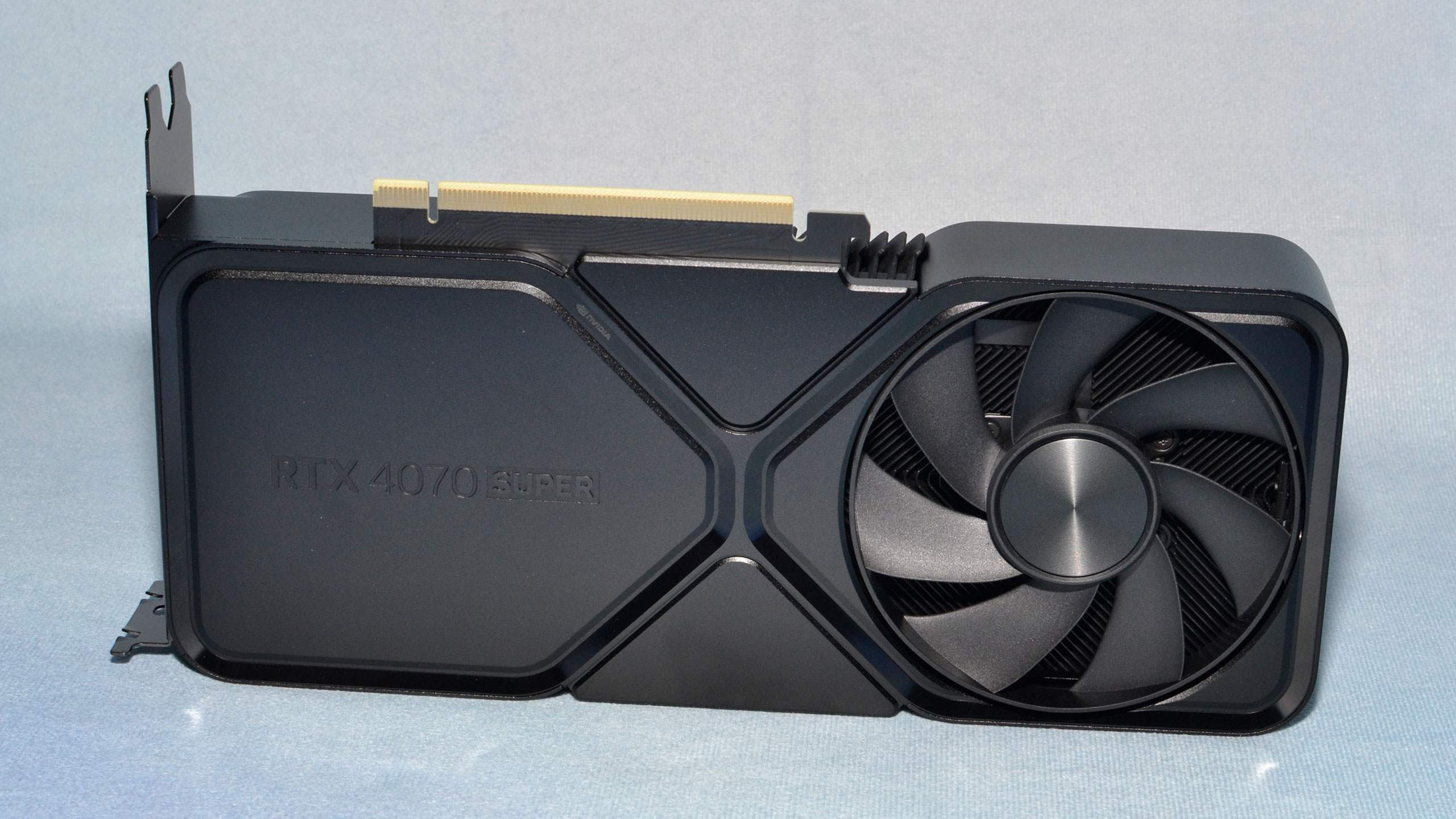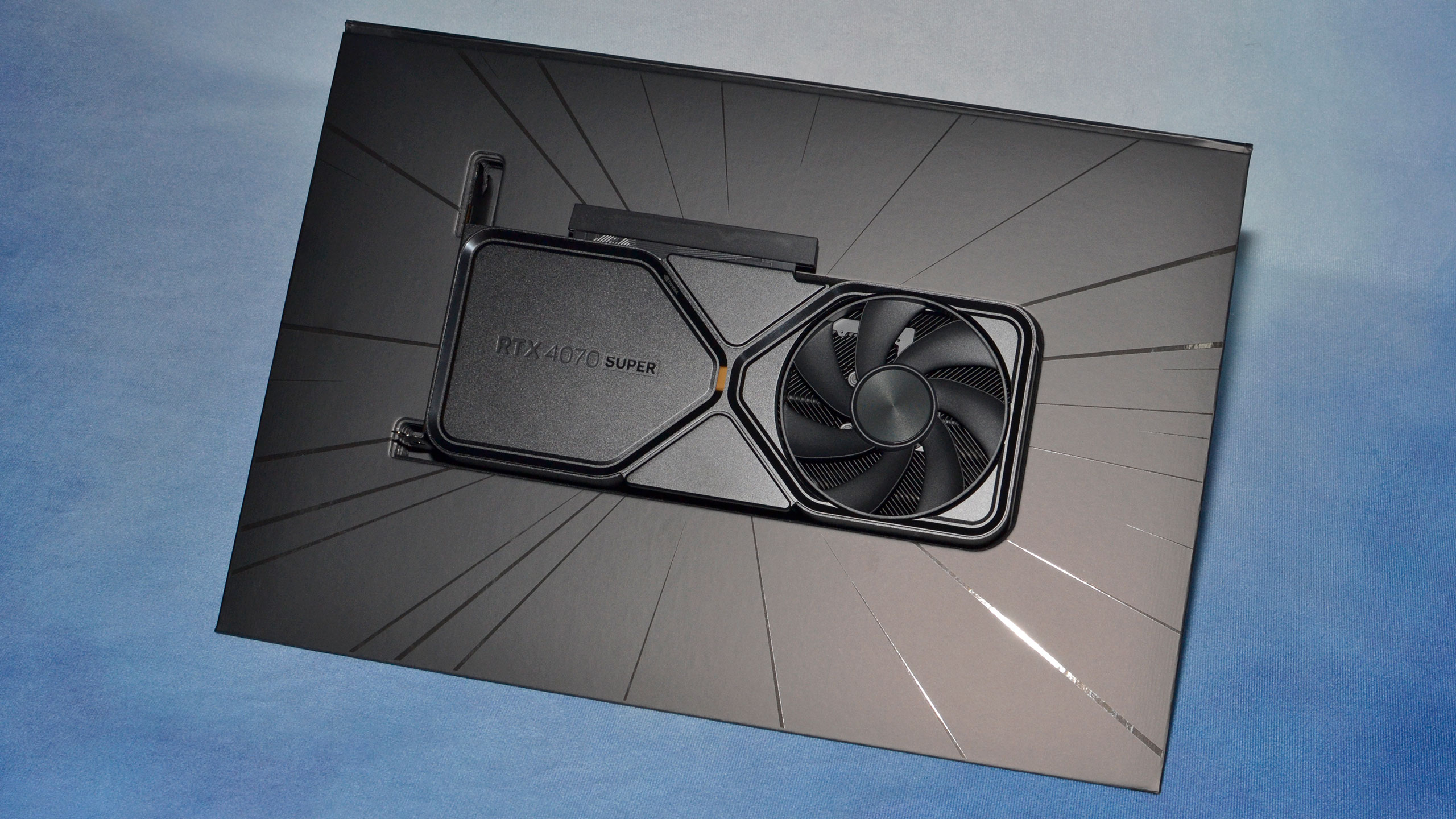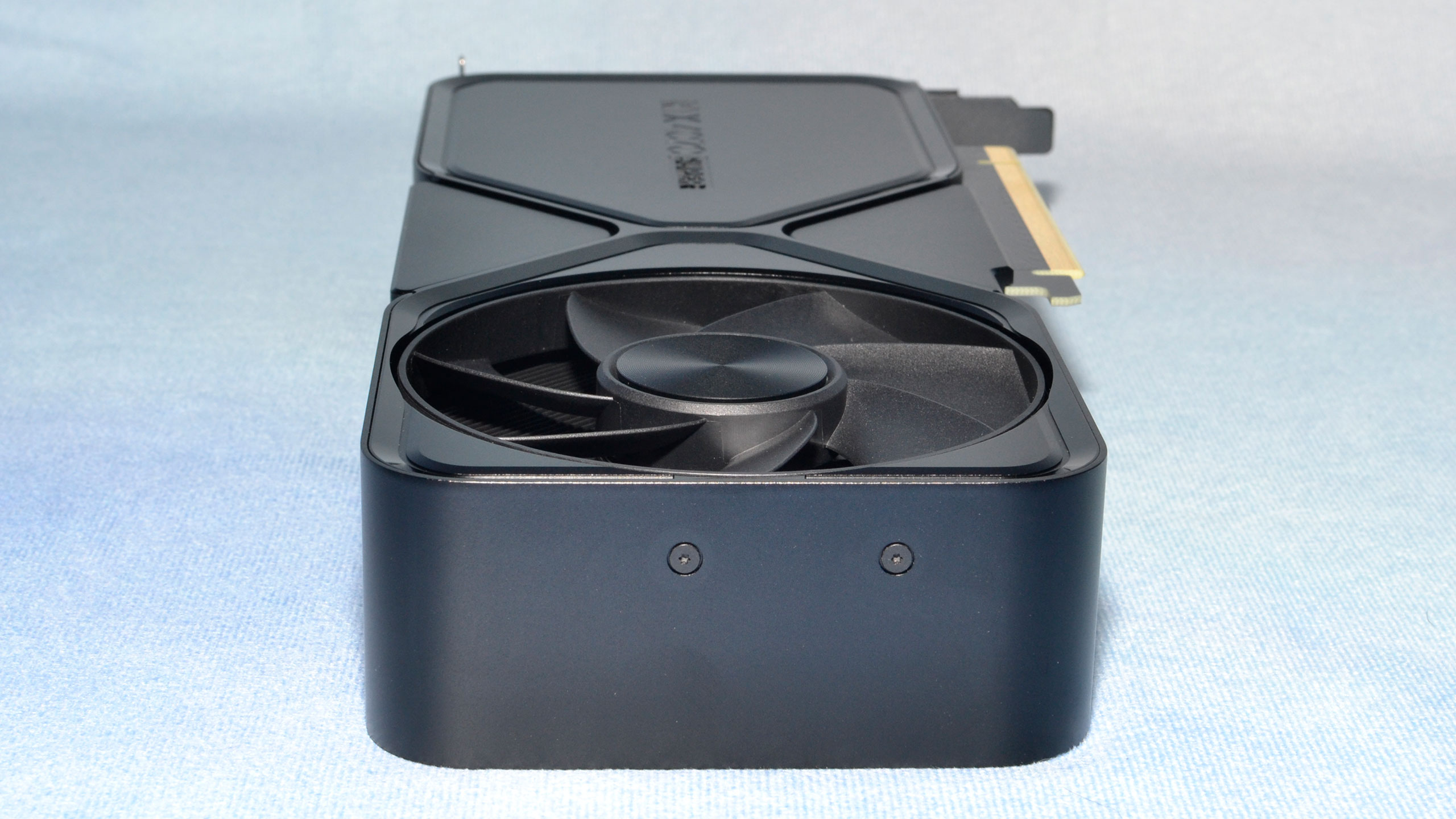Why you can trust Tom's Hardware
Nvidia's RTX 4070 Super doesn't fundamentally change the GPU performance landscape all that much, but what it does provide is higher levels of performance from Nvidia at (mostly) reasonable pricing. Of course, the RTX 4070 (and 4070 Ti) has been selling for quite a bit less than its launch MSRP for quite a while. You basically get linear scaling in terms of bang for the buck when looking at the 4070 and 4070 Super.
In our testing, the 4070 Super ends up outperforming the vanilla 4070 by around 16% on average — slightly more at higher resolutions and in more demanding ray tracing games, slightly less at 1080p and in rasterization games. The cheapest RTX 4070 right now costs $535, so you're paying 12% more for the extra performance.
But that's not entirely fair, as the cheapest 4070 isn't necessarily built to the same quality level as the 4070 Super Founders Edition. The non-Super price will drop to $549 when the Super cards go on sale tomorrow, meaning you get 16% more performance for about 9% more money. Which means the 4070 really needs to go a bit lower in price.

Our biggest concern is something that Nvidia pretty much decided a few years back when the AD104 GPU was in the planning stages. By opting for a 192-bit interface, any graphics card using the "mainstream high-end" chip would be limited to 12GB of VRAM. That's not the end of the world, but for cards that ultimately cost $600 or more, it feels very stingy.
The good news is that the L2 cache at least mostly overcomes the bandwidth limitations. In most of our tests, Nvidia's 40-series GPUs with 12GB of memory are able to compete favorably with AMD GPUs that have 16GB and sometimes even 20GB of memory. But whatever you think of the 12GB VRAM, there's nothing you can really do about it other than choose a different GPU that costs more ($200 more if you wait for the RTX 4070 Ti Super that's due out next week), or just give this generation a pass.
Nearly all current games will be fine with 12GB at 1440p ultra settings — not including mods, which can often bloat texture sizes, naturally. A lot of games will do okay at 4K as well. But we're now living in the era of games where 12GB is the minimum we want on a new GPU, and 16GB would be preferable — and we want 16GB on a 256-bit interface, not double the chips per channel on a 128-bit interface (looking at you, RTX 4060 Ti 16GB).
If you're in the market for a new graphics card that costs around $500–$600, give or take, the RTX 4070 Super now looks like the best option. It's not perfect, but it's a nice step up from the existing 4070, it's efficient, and it provides all of the usual Nvidia features. But we also said most of these things about the RTX 4070 when it first launched — and if you weren't enticed to upgrade then, the 4070 Super doesn't massively change the underlying prospects.
Given the choice, we'd take the 4070 Super at $599 over the RX 7800 XT at $499, even though it doesn't have as much memory. And all indications are that AMD has no intention of launching anything new that will compete with the 4070 Super — the RX 7800 XT and 7900 XT have already launched, while the upcoming RX 7600 XT targets the RTX 4060.
For the high-end gaming market, the 4070 Super is arguably the best option right now. Let's just hope the next generation sequel ends up with more VRAM.
- MORE: Best Graphics Cards
- MORE: GPU Benchmarks and Hierarchy
- MORE: All Graphics Content
Get Tom's Hardware's best news and in-depth reviews, straight to your inbox.
Current page: Nvidia RTX 4070 Super: Refreshing
Prev Page Nvidia RTX 4070 Super: Power, Clocks, Temps, and Noise
Jarred Walton is a senior editor at Tom's Hardware focusing on everything GPU. He has been working as a tech journalist since 2004, writing for AnandTech, Maximum PC, and PC Gamer. From the first S3 Virge '3D decelerators' to today's GPUs, Jarred keeps up with all the latest graphics trends and is the one to ask about game performance.
-
Gururu So they squeeze out a few more FPS to beat the 7800xt and charge $50 more. The price games are maddening.Reply -
AgentBirdnest Mostly what I was expecting... but wow, those results against the 7800XT at 1440p are kinda crazy. +24% for the whole suite, and about +50% in the RT-only results? AMD really needs to rethink the price of the 7800XT.Reply
Interesting results, and interesting article (so far. I look forward to the rest. Hope you get some good sleep until then, Jarred. :))
I'm curious to know how well it overclocks. Can it match the 4070 Ti? -
atomicWAR While a step in the right direction, the ram capacity is still really underwhelming but the performance is promising. The 4070 series (Ti, super or otherwise) should have come with 16GB while the 4080 series should have had 20GB...This gen, save the 4090, has been really disappointing. Cost increases (70/80 series) with underwhelming performance (60/70/80) have been fairly pervasive in the product stack. I hope this helps things...I am interested in the 4070 Ti Super as many of my nephews and nieces have been wanting to upgrade this gen and thus far it has been hard to recommend anything other than the 4090 to them which is out of their budgets by about 700 dollars give or take a hundred.Reply -
Tom Sunday Reply
12GB of 4070 SUPER bliss? That is the million dollar question? At this point in time I would expect more than 12GB of VRAM in especially 2024. Even a 1080ti already had 11GB of VRAM in its side pocket. Will it pay in holding-out for a 4070 Ti SUPER: 2.5X Faster than the RTX 3070 Ti and sporting a mouth watering 16GB of GDDR6X? With that along bolstering CUDA cores, VRAM and reaching 4K gaming heaven? Will in fact a 4070 Ti SUPER be essentially a slight cutdown of the original RTX 4080, meaning that one can expect to see similar performance from the two cards?Gururu said:So they squeeze out a few more FPS to beat the 7800xt and charge $50 more. The price games are maddening.
Overall and in my very limited view the ‘4070 Super Refresh’ series is indeed a welcomed addition. It's commendable that the Super’s overall offer much better ray tracing performance, better energy efficiency and generally a notable performance upgrade compared to the Non-Super cards. No question that NVIDIAs latest 'Super-Play' will certainly put AMD under greater pressure, because they offer more performance and efficiency for basically the same price points. On the flipside I understand that the 4070 Super Refreshes do give the impression that they are only a mid-cycle gap filler. Because of the price? Further if AMD would only lower the price of the 7800XT, many I think would still go for the XT. In some instances AMD reputably has long preferred to stake a few cards at higher prices than to gain market share through price reductions. Food for thought! -
pocketdrummer Toms Hardware needs to do a price to generation performance uplift chart. Use performance uplift as the tier and not the actual product names (xx70 and xx80 mean nothing now). I'm sure we'll see that the price has gone up and the performance uplift has not tracked.Reply -
kyzarvs Call me a luddite as I remain on a venerable 1080ti, but I'm not sure I would trust laying down £600 for a 12GB card today and hoping it works as well as far into the future as my current card has. While it may be okay today, when it's as old as my 1080ti is now, I think 12GB will be a massive limitation.Reply -
Alvar "Miles" Udell At this point I'd have to tell people that unless they have a pre-RTX 2000 series card to wait for the 5000 series. Yes the 4070 Super is a solid 4K60 and 1080p144 (and a case by case basis 2560x1440 120fps) card, but you're still dealing with 12GB VRAM and a very unnecessary 16 pin power adapter for $600+ in an era of horrible economics.Reply -
logainofhades ReplyAgentBirdnest said:Mostly what I was expecting... but wow, those results against the 7800XT at 1440p are kinda crazy. +24% for the whole suite, and about +50% in the RT-only results? AMD really needs to rethink the price of the 7800XT.
Interesting results, and interesting article (so far. I look forward to the rest. Hope you get some good sleep until then, Jarred. :))
I'm curious to know how well it overclocks. Can it match the 4070 Ti?
That 24% is only due to RT. If you look at pure raster performance, the gap is much smaller. Definitely not worth the $90 ish price premium, unless you truly care about RT, which I personally do not.
-
subspruce Reply
No, ofc not. Nvidia pushes their chips to the max that they can without having more not-up-to-requirements GPUs than can be offloaded as some kind of China Quadro.AgentBirdnest said:I'm curious to know how well it overclocks. Can it match the 4070 Ti? -
oofdragon Only in Toms Hardware fairy tale land the 4070 matches the 7800xt in raster, everywhere else the 4070Ti ties with it. This website is a jokeReply

